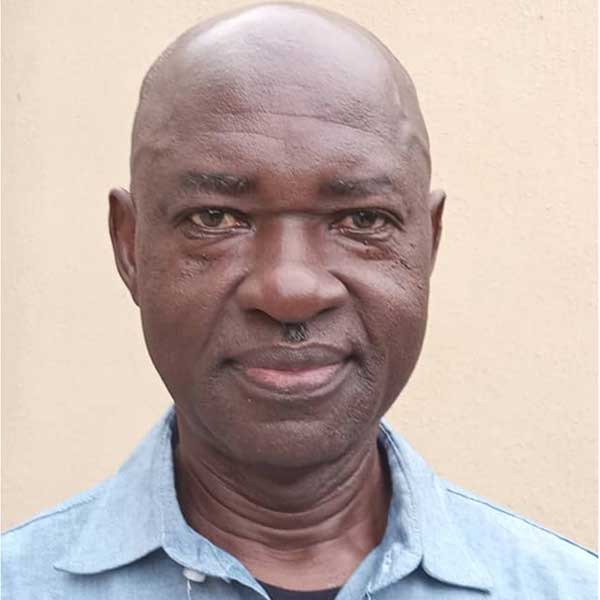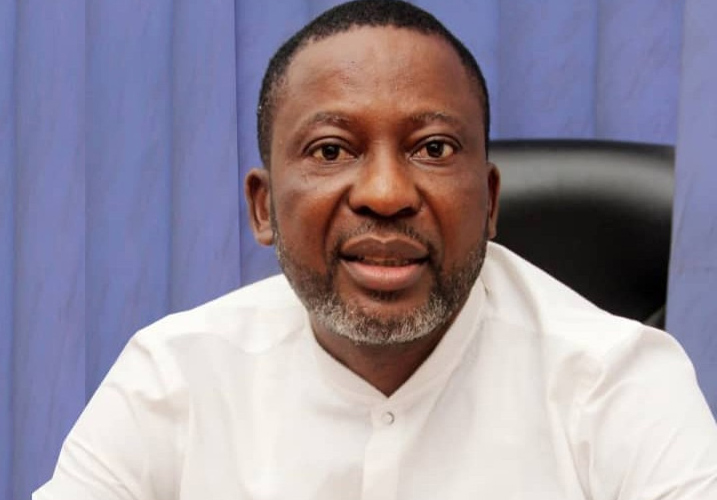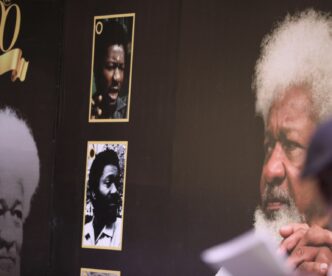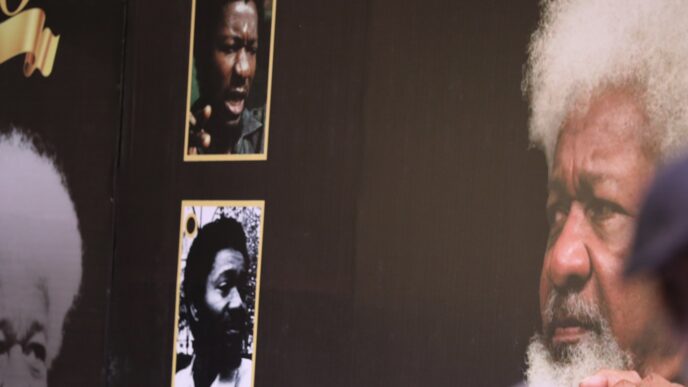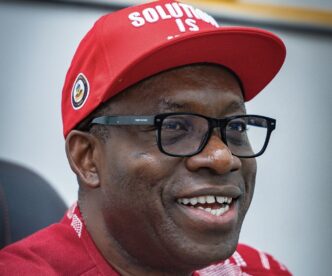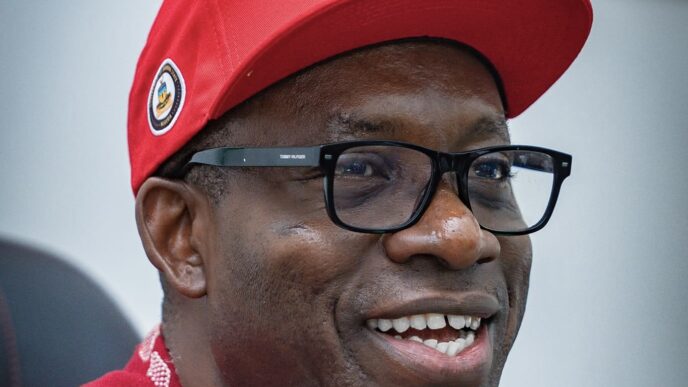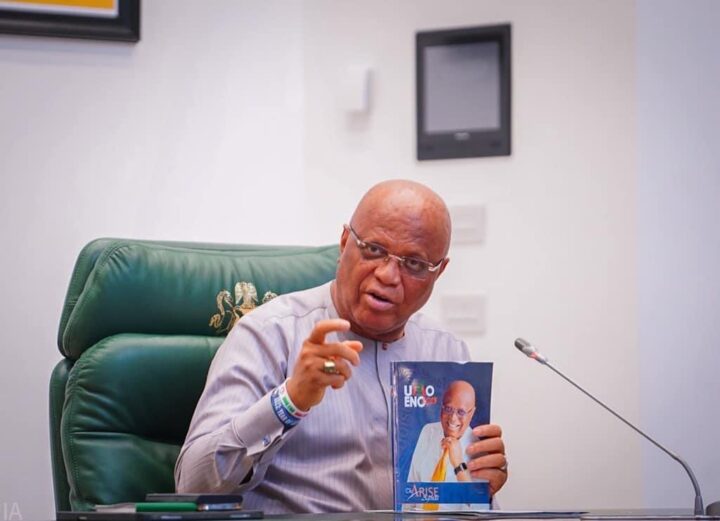Kalu Okoronkwo
The Inclined Leader sounds like an intellectual effort directed at individuals who have a disposition towards leadership. I cannot say why the author chose the adjective “inclined” to headline a book that actually addresses readers who do not only have a tendency or an aspiration to become leaders but also those who are already leaders in various capacities. One way to understand what appears to be a self-imposed limitation is to see the author’s attempt to reach out to everyone in the line of leadership – from the cradle to tested positions – since everybody, at whatever stage in life, must remain in a learning mode and have a healthy desire for acquiring more knowledge. Anyways, rest assured that the book that is about to be unveiled offers more than the denotative meaning of its title.
Who is a leader? Must leaders always have followers who consciously follow them? What exactly is the value of any discussion on leadership outside the context of leader-follower relationship? It should not be too difficult to prove that in practical terms, there are no rigid lines between being a leader and a follower. There should not be fixations about the two classifications since they are not permanent. Any debate about the superiority of a leader or follower is, therefore, not necessary.
But just in case there exists any confusion about the notion of who a leader is, look no further beyond The Inclined Leader. In it, the author, Kalu Okoronkwo, throws out a challenge to anyone desirous of self-discovery or rediscovery, especially as it relates to the capacity to lead irrespective of one’s background. This illumination usually comes with the energy which produces the decision to defy the personal and environmental shackles that often hinder people from exercising their innate potentials and aiming for the heights.
In 15 well-written chapters, Okoronkwo explores various angles of leadership in an effort to convince the reader that this critical subject should not be left only to a privileged minority who hold distinctive posts in homes, organisations, local government councils, states or nations. The titles of the chapters are too compelling to ignore. They include: “The Art of Purposeful Action”, “Unleashing Your Potential: Empowering Self-leadership”, “Taking Ownership of Your Personal Growth and Development”, “Resolving Conflicts and Navigating Difficult Conversations”, “The Power of Vision and Purpose in Leadership”, “Creating High Performing and Collaborative Teams”, “Implementing Enduring Learning and Development”, “Reflecting on Your Personal Leadership Journey”, among others.
Advertisement
The first chapter, The Essence of Leadership, shows the writer’s eagerness to introduce his reader to the numerous manifestations and possibilities of leadership. According to him, “No matter how insignificant we may consider our roles, leadership goes beyond merely holding a position of authority; it is about embodying a set of qualities and behaviours that inspire trust, respect, and admiration from those being led.” This assertion makes the notion of being a successful leader indispensable to the mobilisation of people for whatever reason. True leaders possess a certain light that keeps their followers on track. For, it is easy to follow when there is a guarantee that the destination is not a ditch or the edge of a cliff.
“Celebrating Diversity and Inclusion” is a subheading in chapter three. Okoronkwo is of the view that, “Leaders who empower others celebrate diversity and inclusion within their teams. They value different perspectives and actively promote an environment where individuals from diverse backgrounds feel welcome and appreciated. Empowering others in leadership involves creating an inclusive and supportive environment where individuals are encouraged to take ownership of their work.” This is one huge responsibility leaders often fail to bear. Human beings arrived here with various gifts, potentialities and abilities. It ought not to be too hard for a leader to identify or recognise this existential reality and encourage every member of the group to achieve set goals.
In another subheading, “Practicing Self-compassion and Mindfulness”, we are reminded that, “A leader with self-compassion and mindfulness always cultivates a sense of peace and contentment within in spite of constant barrage of self-criticism and other pressures of life that could ordinarily make him weak. Leaders who practice self-compassion and mindfulness balance being gentle with oneself, just as one would be with a dear friend who is experiencing difficulties. They recognise that we are all imperfect and deserving of love and understanding….” Truth is, the more leaders have a better picture of the various dimensions and tendencies of their own lives, the more they could demonstrate empathy towards others.
Advertisement
With “Leaving a Lasting Legacy”, Okoronkwo brings his reader nearer a major sublime outcome of true leadership which is the concept of legacy. He puts it succinctly thus: “Leadership is not merely about achieving success during one’s tenure; it is about leaving a lasting legacy that transcends time and positively impacts future generations. Leaving an impactful legacy demonstrates that leadership is not confined to one’s time in office or position. Leaders who leave a lasting legacy transcend boundaries, inspire change, and shape the world for generations to come.”
That particular point should be sobering. Unfortunately, the very idea of wanting to leave a good name behind now seems to belong to the distant past. In virtually every sphere of endeavour, it is more fashionable to grab anything in view in the course of holding any seat. Money and what money can buy have effectively taken many people away from the noble paths of selflessness and posterity. For such individuals, even the obvious facts of the ephemerality and vanity of life do not mean anything.
In assessing the strength of a work, one can weigh it against similar and more established works. In that sense, The Inclined Leader in some respects echoes the writings of a world-renowned leadership expert, John C Maxwell, who has to his credit memorable expressions like: “Leadership is not about titles, positions, or flowcharts. It is about one life influencing another.” “People buy into the leader before they buy into the vision.” “A leader who produces other leaders multiplies their influence.” “It’s not the position that makes the leader; it’s the leader that makes the position.” “All true leaders have learned to say no to the good in order to say yes to the best.” and “A leader is one who knows the way, goes the way, and shows the way.” That Maxwell does not even appear on the reference list of this book shows the universality and vastness of the topic of leadership.
Nothing is perfect in this world, so this 191-page book cannot claim to be. Expect some errors and debatable production styles. For instance, the pages are loaded with numerous subheadings in bold prints. That creates some graphic and aesthetic density. The reference page is also not clinical enough. The acknowledgements page which is sometimes treated with levity by writers but vital to standard publishing, is dressed here in anonymity. The writer is pleased to express his gratitude to those he refers to as “my family…mentors and advisers…colleagues and friends… publishers and editors”. You are left to figure out if you belong to any of these categories.
Advertisement
Luckily, however, those shortcomings are not strong enough to overshadow the core thematic relevance of the work which is to draw attention to the inherent capability of everyone to lead no matter his or her station in life. Equally remarkable is the author’s mature use of language which is good for different levels of adult readers. In effect, The Inclined Leader is a commendable contribution to the growing literature on leadership.
Dr Ekpe is a member of THISDAY Editorial Board. This is a review of The Inclined Leader written by Kalu Okoronkwo and presented at The Yar’Adua Centre Abuja on July 17, 2024.
Views expressed by contributors are strictly personal and not of TheCable.
Add a comment
